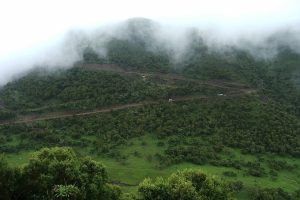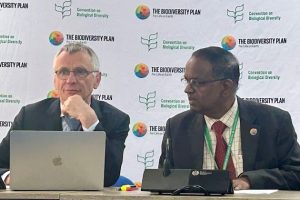BY YOHANES JEMANEH
In recent years, east African countries have been consolidating cooperation in expanding education and job opportunities to internally displaced peoples (IDPs), refugees, returnees, and host communities. This cooperation relies on the Djibouti Declaration in which the member states inked an agreement to play a fair share in facilitating suitable education and working atmosphere for the communities.
Lately, the Health and Social Development Division of the Intergovernmental Authority on Development (IGAD) conducted a Regional Teacher Training Learning Exchange Workshop for Displaced and Refugee Communities with a theme of “training the teachers for inclusive and quality education for refugees, returnees, and host communities”.
Speaking at the workshop held in Ethiopia, IGAD Director for Health and Social Development Division, Fathia Alwan, welcomed the participants reminding them that the IGAD Teacher Training Programme is an integral part of the implementation of the Djibouti Declaration and its accompanying Plan of Action on Education for Refugees, Returnees, IDPs and Host Communities.
The key purpose of the workshop is to provide a forum for key stakeholders and partners to collaboratively discuss, reflect and analyze the learning approach and all activities completed over an 18-month period, it was learnt.
Stakeholders and partners such as teachers that have participated in the training, representatives from the respective partner institutions including the Ministry of Education, National Teachers’ College Trainers, GIZ, UNHCR, UNESCO, and the IGAD secretariat attended the two-day meeting. The workshop is being convened by IGAD, in partnership with the Government of Germany through GIZ and implemented by Participants.
By the same token, IGAD is drafting a qualifications framework to boost integration and open up education and job opportunities for students and citizens across the region. The preparation of the new framework is important for knowledge transfer between IGAD member states.
IGAD Education, Science, Technology, and Innovation Program Coordinator Kebede Kassa (PhD) said the regional qualification framework will enable people to move freely across the region with their educational qualifications.
He told The Ethiopian Herald exclusively that the regional bloc is offering successive training to refugees sheltering in camps as per of its Teachers Training Program (ITTP) for Displaced and Refugee Communities. “The program is dedicated to bringing change among each community of the region through interacting and enlightening teachers,” he said.
So far, teachers in Ethiopia, Sudan, and Uganda have received the training. And, teachers in the member states will be provided with the training that helps offer free and quality education for the displaced and refugees, Kebede added.
IGAD is playing a leading role in creating integration opportunities among the region’s communities to meet its vision of realizing inclusive education for refugees, returnees, and host communities, he added.
Accordingly, the IGAD initiative on secondary school teachers’ training is an integral part of its Djibouti Declaration and Plan of Action (POA) on education for refugees, returnees, and host communities that aim to enhance access to tertiary education and TVET programs.
“Currently, if you have a certificate from one country, you are not easily recognized in the next and this has been a big challenge to our integration and unity,” Dr. Kebede said at the third conference of the IGAD Qualifications Framework. It is only Kenya that has an operational qualifications framework so far.
Ethiopia is also facilitating preparations to draft the qualification framework. According to Ethiopia Education and Training Authority Director-General Dr. Andualem Admasse, the country is at an advanced stage of developing its framework.
“We already have the green light to develop the national qualifications framework for Ethiopia and we are ready to work with other member countries to streamline our education systems,” he said.
Dr.Andualem said the regional qualifications will solve the challenges that citizens and graduates from foreign countries have faced in the past due to the lack of a centralized system to validate their foreign education qualifications.
Sudan’s National Centre for Curriculum and Education Researches General Manager Dr. Moawia Elsir Gashi said the implementation of a regional framework will enhance the region’s functional relationships. “Harmonization of qualifications will enable students from the region to transfer credit courses and also find jobs within the region using their country’s educational qualification,” said Dr. Gashi.
The Kenya National Qualifications Authority Director Juma Mukhwana said the regional qualifications framework will support the integration of refugees, host communities, and returnees into the National Educational and Training Systems. “The ideal plan is that every country should be able to come up with their respective qualification framework and then integrate it with the IGAD framework,” said Dr. Mukhwana.
IGAD hosts about 4.2 million refugees and 9.6 million internally displaced persons within its member states including Ethiopia, Eritrea, Djibouti, Kenya, Somalia, South Sudan, Sudan, and Uganda.
Ethiopia perceives the necessity of the framework as a crucial step in building mutual trust among IGAD members on educational qualifications as it doesn’t oblige the nations to develop identical curriculum instead of requesting them to integrate the framework in their educational systems to create conducive working environment to refugees and returnees in the region. In implementing the framework, Dr. Andualem said IGAD is not pushing countries to have the same curriculum as each country has its own needs.
“Our effort is to have a regional framework then each country will have its own national curriculum and that will make it easier for countries to accept qualifications from across the region,” he said.
In Kenya, universities and colleges are required to seek validation of the foreign student’s qualifications before admitting them. Dr. Mukhwana said this is to ensure that only students who have met the prerequisite entry requirements for admission to universities and colleges are admitted to the country.
In the eight countries, the education systems have set individual entry requirements for the university. The Head of the IGAD mission in Kenya Dr. Fatuma Adan said the framework seeks to ensure that countries have education systems that allow mobility of citizens from one country to another.
“IGAD protocol allows people within the eight-member states to move across the borders with their services, goods, and animals while complying with the regulations of cross border rules and regulations,” she said.
She added that “if a citizen moves with their animals from one country to another and has a qualification, one should be able to find a job in the other country and teach if one is a teacher and one is a doctor should be able to provide services across borders”.As to Adan, the regional framework will also be integrated into the continental framework as guided by the African Union. Meanwhile, Ethiopia, Kenya, and Tanzania have adopted a regional framework for technical and vocational institutions.
The countries will harmonize their TVET curriculum, qualifications, and occupational standards under the East Africa Skills for Transformation and Regional Integration Project in a move to expose youth in the region to diverse skills.
The framework will also facilitate students’ mobility and faculty while enabling industrial partnerships across the region. Further, it will strengthen the capacity of national agencies responsible for the approval of occupation standards, model curriculum, and accreditation of TVET programs.
The regional framework seeks to enhance regional collaboration in TVET through networking, knowledge sharing, and the development of regional public goods to promote regional integration.
The Djibouti Declaration signed in December 2017 by IGAD member states stipulates that the countries need to show commitment to cooperation in creating a suitable environment to enhance education, training, and skills development for IDPs, Refugees Returnees, and host communities, to reduce their dependence on humanitarian assistance and prepare them for gainful employment in host communities and upon return among others. Therefore, such moves as developing an educational qualification framework and facilitating experience-sharing platforms on various works including teachers’ training are significant steps to this end.
The Ethiopian Herald June 15/2022





